 Petzlover
Petzlover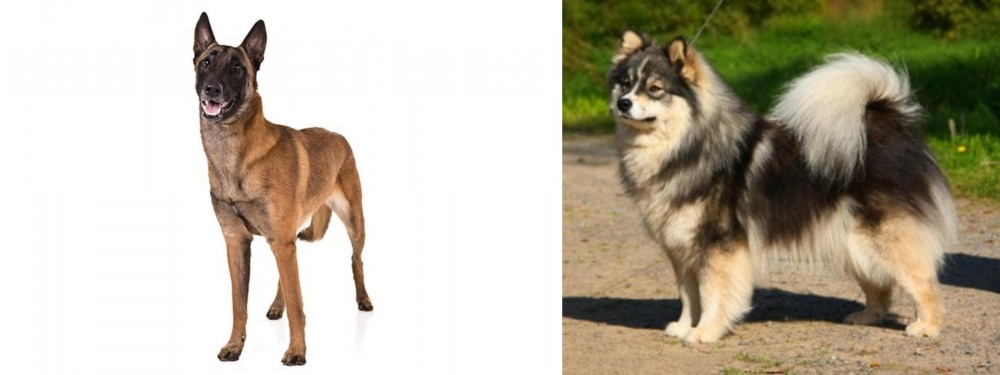 Belgian Shepherd Dog (Malinois) is originated from Belgium but Finnish Lapphund is originated from Finland. Belgian Shepherd Dog (Malinois) may grow 14 cm / 6 inches higher than Finnish Lapphund. Belgian Shepherd Dog (Malinois) may weigh 10 kg / 23 pounds more than Finnish Lapphund. Both Belgian Shepherd Dog (Malinois) and Finnish Lapphund has same life span. Belgian Shepherd Dog (Malinois) may have more litter size than Finnish Lapphund. Belgian Shepherd Dog (Malinois) requires Low Maintenance. But Finnish Lapphund requires Moderate Maintenance
Belgian Shepherd Dog (Malinois) is originated from Belgium but Finnish Lapphund is originated from Finland. Belgian Shepherd Dog (Malinois) may grow 14 cm / 6 inches higher than Finnish Lapphund. Belgian Shepherd Dog (Malinois) may weigh 10 kg / 23 pounds more than Finnish Lapphund. Both Belgian Shepherd Dog (Malinois) and Finnish Lapphund has same life span. Belgian Shepherd Dog (Malinois) may have more litter size than Finnish Lapphund. Belgian Shepherd Dog (Malinois) requires Low Maintenance. But Finnish Lapphund requires Moderate Maintenance
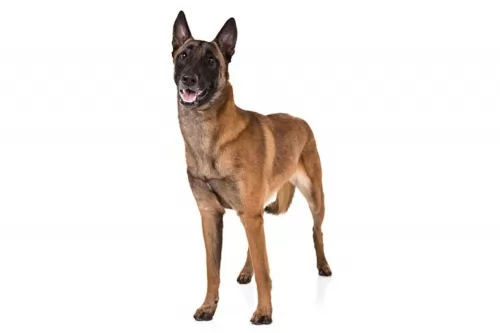 The Belgian Malinois is one of 4 Belgian Shepherd varieties. The dogs were developed- and hail from Belguim. The Malinois has a short, fawn colored coat. The American Kennel Club recognizes that the Malinois is a separate breed from the other 3 varieties. It was in 1892 that Professor Reul wrote the first Belgian Shepherd Dog standard, recognizing 3 varieties – dogs with short coats, dogs with long coats and dogs with rough coats.
The Belgian Malinois is one of 4 Belgian Shepherd varieties. The dogs were developed- and hail from Belguim. The Malinois has a short, fawn colored coat. The American Kennel Club recognizes that the Malinois is a separate breed from the other 3 varieties. It was in 1892 that Professor Reul wrote the first Belgian Shepherd Dog standard, recognizing 3 varieties – dogs with short coats, dogs with long coats and dogs with rough coats.
Today's Malinois goes back to a breeding pair owned by Adrien Janssens. It was in 1885 that he bought a fawn, rough-haired dog, breeding the dog with a short-haired dog named Lise de Laeken. After other breedings, the two dogs were recognized as ancestors of the modern Belgian Shepherd Dogs.
The city of Malines formed a club for the promotion of these fawn short hairs and the name Malinois became synonymous with them. In March 1992, the American Belgian Malinois Club received AKC parent club status.
 Known also as the Lapinkoira, Lapponian Shepherd Dog or Finish Lapland Dog, it is believed that the Finnish Lapphund is an ancient dog breed, dating back way back to 7000 B.C.
Known also as the Lapinkoira, Lapponian Shepherd Dog or Finish Lapland Dog, it is believed that the Finnish Lapphund is an ancient dog breed, dating back way back to 7000 B.C.
The breed had its origins as a reindeer herder with the Sami people, being both herder and protector. In Finland, the first breed standards for the dog were set in 1945 by the Finnish Kennel Club. They called the dog the Lappish Herder.
The first American litter was born in 1988 and it was in 1994 that the breed was recognized by the United Kennel Club, becoming a recognized breed in the Herding Group in 2011.
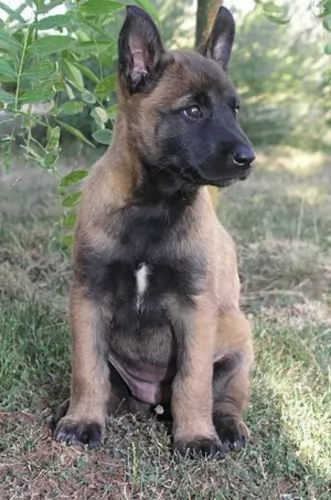 The Malinois is a medium-size Belgian shepherd dog. People sometimes mistake them for the German Shepherd as they are fairly similar to look at. The Malinois however is a smaller, lighter boned dog with naturally upright ears and a black-masked face. He is shorthaired and fawn-colored with black tips on the hairs, although other colors are brown or red too. He is an intelligent and active dog, always having been used for herding-, police- and rescue work.
The Malinois is a medium-size Belgian shepherd dog. People sometimes mistake them for the German Shepherd as they are fairly similar to look at. The Malinois however is a smaller, lighter boned dog with naturally upright ears and a black-masked face. He is shorthaired and fawn-colored with black tips on the hairs, although other colors are brown or red too. He is an intelligent and active dog, always having been used for herding-, police- and rescue work.
You’ll find the Malinois somewhat unpredictable as some are friendly and confident while other can be shy and withdrawn around strangers. This is a dog who loves to be around his human family, but to bring out the best in him, training and socialization classes will be necessary. Well-socialized Malinois are always good with children and other pets, more so if they’ve been raised with them.
 Looking quite a bit like the Samoyed, Siberian Husky or Australian Shepherd, the Finnish Lapphund stands at between 40 and 52cm and weighing 15 to 24kg.
Looking quite a bit like the Samoyed, Siberian Husky or Australian Shepherd, the Finnish Lapphund stands at between 40 and 52cm and weighing 15 to 24kg.
The Finnish Lapphund is a medium sized dog with a friendly, sweet face.He has a beautiful soft cuddly kind of coat that is medium to long in length and essentially straight. The dense undercoat provides insulation and shouldn’t be trimmed.The dog comes in different colors such as tan brown, yellowish and black. The ears are erect and the tail is bushy, curling over the back.
One characteristic of this dog which can irritate some people is that he has a tendency to bark. This characteristic of his makes him a good watch dog though. He is a friendly dog who wants to do the right thing, and training and socialization can ensure that he is always obedient and amicable.
Intelligent and alert, your pet is an intelligent dog and training him won’t prove to be difficult.It is a dog which craves companionship from his human family and he wants to be included in all his family’s activities. He wants to accompany you on all your running- and cycling activities. He gets on well with children in the home with his gentle nature, being a particularly friendly breed.
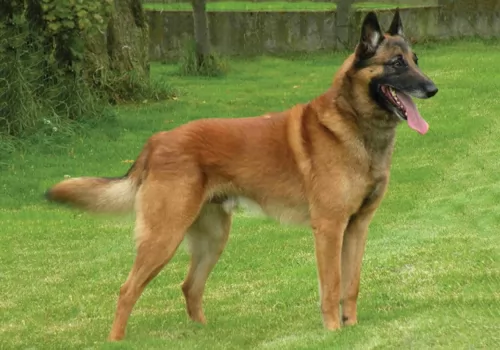 The Belgian Malinois makes a wonderful guard dog and he works hard to ensure that his human family, whom he adores, are well protected under his watch. They’re such intelligent dogs too that you may feel inclined to pass over some of your chores to him.
The Belgian Malinois makes a wonderful guard dog and he works hard to ensure that his human family, whom he adores, are well protected under his watch. They’re such intelligent dogs too that you may feel inclined to pass over some of your chores to him.
He responds well to training, and to get the best from this breed, start with training and socialization as soon as you bring your puppy home.
Socialization is excellent as it introduces your puppy to different people, animals as well as situations.
He is an adaptable dog and can live in an apartment if he is well exercised. He can be your devoted and loyal friend for a good number of years but you will have to do your part in providing him with the best care possible.
 The Finnish Lapphund is an active and alert dog who just loves to fuss around his human family. He has many good qualities that make him the perfect family pet. It is why he is often referred to as an all-rounder.
The Finnish Lapphund is an active and alert dog who just loves to fuss around his human family. He has many good qualities that make him the perfect family pet. It is why he is often referred to as an all-rounder.
He is a calm, friendly non-aggressive dog who wants to be co-operative with his owners. He has the tendency to bark. With a friendly, happy face, he is essentially just a big teddy bear and if you treat him well he is going to make sure that he showers you with his special love and loyalty.
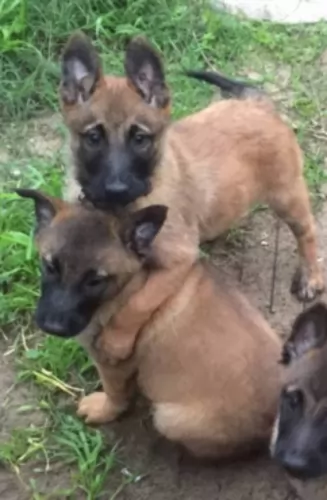 Belgian Malinois are generally healthy dogs. However every dog, regardless of breed, can pick up illnesses, and it is always wise to be aware of some of the diseases your Malinois might face.
Belgian Malinois are generally healthy dogs. However every dog, regardless of breed, can pick up illnesses, and it is always wise to be aware of some of the diseases your Malinois might face.
An inherited condition where the thigh bone doesn't fit properly into the hip joint. As the dog ages, arthritis can develop.
A degenerative eye disorder that can lead to blindness.
Brush his teeth at least 2 or 3 times a week to remove tartar build-up. Too much plague leads to inflamed gums, bad breath, pus inside the mouth and even loss of teeth.
 Regarded as generally healthy, the Finnish Lapphund can reach anything between 12 and 14 years of age. There are however one or two common dog illnesses that your Finnish Lapphund might be more prone to and these are hip and elbow dysplasia as well as progressive retinal atrophy.
Regarded as generally healthy, the Finnish Lapphund can reach anything between 12 and 14 years of age. There are however one or two common dog illnesses that your Finnish Lapphund might be more prone to and these are hip and elbow dysplasia as well as progressive retinal atrophy.
While the occurrences of these illnesses is rare, they can happen with your Finnish Lapphund. Whenever you notice something untoward with your pet, get him to the vet immediately.
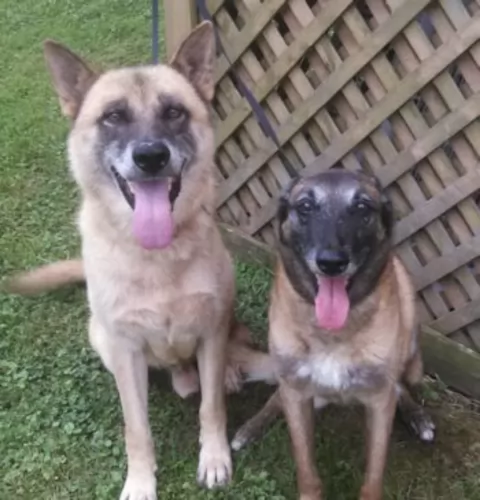 Because the Malinois is a constant shedder, with a couple of heavy shedding periods during the year, you’ll need to be conscientious with his grooming and brush him at least twice a week to get rid of loose hairs and to give his thick coat a glossy, healthy look to it.
Because the Malinois is a constant shedder, with a couple of heavy shedding periods during the year, you’ll need to be conscientious with his grooming and brush him at least twice a week to get rid of loose hairs and to give his thick coat a glossy, healthy look to it.
Because of their high energy, Malinois aren’t recommended for couch-potato type owners. It will be cruel to buy such a dog and to leave him to waste away with boredom and frustration in your back yard. He’ll want lots of rough and tumble, ball games, runs in the park or in the country and long walks.
Belgian Shepherd Malinois puppies are vulnerable when they’re tiny, and it would be wise to speak to your vet about superb nutrition to build up a puppy’s immune system.
An excellent way to ensure the health of your growing Malinois is to give him a home prepared meals along with commercially manufactured food recommended by your vet. You can’t just put a bowl of commercially manufactured dog food in front of him day after day month after month.
Apart from what your vet recommends, give him some brown rice, some cooked vegetables and some raw meat. Raw meat will ensure he can fight of skin infections. The age of the dog, emotional state and environmental influences can all play a role in skin diseases with dogs, but by ensuring some raw meat in his diet, the immune system is strengthened and skin disorders are eliminated. Always ensure a steady supply of fresh water.
 With his beautiful, thick coat the Finnish Lapphund sheds quite heavily during certain seasons. The double coat will certainly require a good brushing at least twice a week to remove dirt, burrs and grass.
With his beautiful, thick coat the Finnish Lapphund sheds quite heavily during certain seasons. The double coat will certainly require a good brushing at least twice a week to remove dirt, burrs and grass.
All dogs deserve a high quality dog food which is appropriate to the breed, the age of the dog, his size and his activity levels.
You want to ensure that your pet gets all the right vitamins and minerals he requires for good health. If you aren’t sure what to feed your pet on, speak to your vet. Home-made food is always a good idea too as it provides some variety to your pet’s diet. Cooked rice, vegetables and chicken becomes a tasty, nutritious treat when added into his kibble. Also try to add in some raw meat when you can as well to ensure his skin and coat remain healthy. Cool, fresh water is to be supplied night and day non-stop.
Your Finnish Lapphund isn’t the kind of dog who is going to be bounding around you demanding exercise. He is a calm dog with moderate exercise requirements. He will love to join you on a walk every day and some ball games will satisfy him.